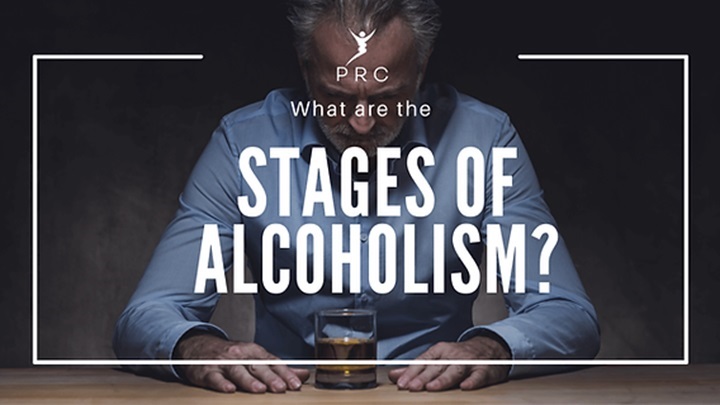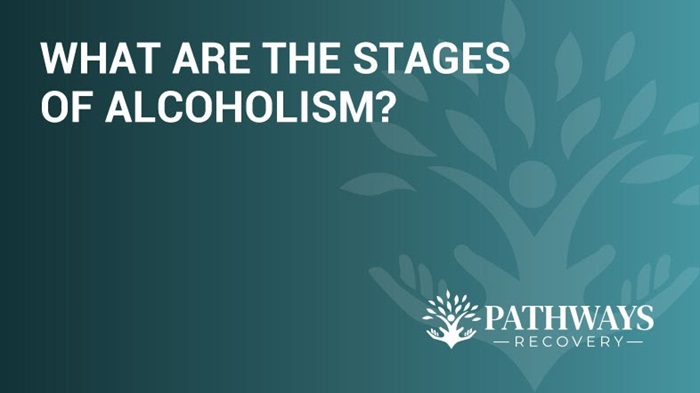Alcoholism, or alcohol use disorder (AUD), is a complex condition that can severely affect a person’s physical and mental health. It is characterized by an inability to control alcohol consumption despite the negative consequences it brings. This article explores the various stages of alcoholism, with a particular focus on the stage where serious health problems manifest.
What is Alcoholism?
Before delving into the stages, it’s essential to understand what alcoholism entails. Alcoholism is not merely heavy drinking; it’s a chronic disease that can lead to severe health problems, emotional distress, and social issues. It can develop over time, and its severity can vary from person to person.
Signs of Alcoholism
Recognizing alcoholism involves identifying various signs, which may include:
- Increased Tolerance: Needing to drink more to achieve the same effects.
- Withdrawal Symptoms: Experiencing nausea, sweating, or anxiety when not drinking.
- Neglecting Responsibilities: Failing to meet work, school, or home obligations.
- Loss of Control: Drinking more than intended or for longer periods.
Stages of Alcoholism
Understanding the stages of alcoholism is crucial for identifying when serious health problems may arise. The progression typically involves three stages:
- Early Stage
- Middle Stage
- Late Stage
Early Stage
The early stage is often characterized by:
- Social Drinking: Alcohol is consumed primarily in social settings without apparent issues.
- Occasional Blackouts: Some instances of memory loss may occur after drinking.
- Denial: The drinker often believes they can quit anytime or that they don’t have a problem.
Health Implications in the Early Stage
During the early stage, health issues are generally minimal but may include:
- Dehydration: Mild dehydration can occur, leading to headaches and fatigue.
- Gastrointestinal Disturbances: Upset stomach, nausea, or heartburn can be common.
Middle Stage
The middle stage is where more noticeable signs of alcohol dependence begin to surface:
- Increased Consumption: Drinking becomes more frequent and in larger quantities.
- Relationship Strain: Friends and family may start to notice changes in behavior.
- Escalating Withdrawal Symptoms: As tolerance builds, withdrawal symptoms may worsen.
Health Implications in the Middle Stage
In this stage, the drinker may begin to face more serious health issues, including:
- Liver Damage: Conditions like fatty liver, alcoholic hepatitis, or fibrosis may develop.
- Mental Health Issues: Anxiety, depression, and cognitive decline can begin to emerge.
- Cardiovascular Problems: Increased blood pressure and heart rate may occur.
Late Stage
The late stage of alcoholism is where serious health problems become pronounced. This stage is often marked by:
- Complete Loss of Control: The individual may drink compulsively and find it challenging to stop.
- Isolation: Friends and family may distance themselves, leading to loneliness.
- Severe Withdrawal Symptoms: Symptoms like seizures or delirium tremens (DTs) can occur if drinking is abruptly stopped.
Health Implications in the Late Stage
This stage poses the highest risk for severe health problems, including:
- Liver Disease: Conditions such as cirrhosis can develop, severely affecting liver function and overall health.
- Pancreatitis: Inflammation of the pancreas can occur, leading to severe abdominal pain and digestive issues.
- Cancer: Alcohol consumption is linked to an increased risk of various cancers, including liver, breast, and esophageal cancer.
- Neurological Damage: Chronic alcohol use can lead to brain damage, impacting memory, cognition, and coordination.
The Transition to Serious Health Problems
As an individual progresses through these stages, the transition to experiencing serious health problems typically occurs in the late stage of alcoholism. However, the timeline can vary widely among individuals based on factors such as:
- Genetics: Family history of alcoholism can predispose individuals to more severe outcomes.
- Environment: Socioeconomic factors, access to healthcare, and social support can influence the progression.
- Co-occurring Disorders: The presence of mental health conditions can exacerbate the effects of alcoholism.
Risk Factors for Health Problems
Several factors can contribute to the risk of developing serious health problems due to alcoholism:
- Age of Onset: The earlier an individual starts drinking, the higher the risk of developing alcohol-related health issues.
- Drinking Patterns: Binge drinking or consuming large quantities regularly increases health risks.
- Overall Health: Pre-existing health conditions can worsen the impact of alcohol on the body.
Recognizing the Signs of Serious Health Problems
It’s crucial for individuals and their loved ones to recognize the signs of serious health problems stemming from alcoholism. Common indicators include:
- Physical Symptoms: Jaundice (yellowing of the skin and eyes), swelling in the abdomen, or persistent fatigue.
- Behavioral Changes: Increased irritability, withdrawal from social activities, or neglect of personal hygiene.
- Mental Health Decline: Heightened anxiety, depression, or suicidal thoughts.
Seeking Help
If you or someone you know is experiencing these signs, seeking help is essential. Many treatment options are available, including:
- Detoxification Programs: Medically supervised detox can help manage withdrawal symptoms safely.
- Rehabilitation Programs: Inpatient or outpatient treatment can provide comprehensive care and support, such as those offered at a Hollywood Hills rehab center, where individuals receive personalized, high-quality treatment in a serene and supportive environment.
- Support Groups: Organizations like Alcoholics Anonymous (AA) offer community support and resources for recovery.
The Importance of Early Intervention
Early intervention can significantly affect the progression of alcoholism and the onset of serious health problems. Here are some strategies for intervention:
Education
Educating oneself and others about the risks of alcohol use can create awareness and prompt early action. Resources such as books, articles, and workshops can help.
Open Communication
Encouraging open and honest conversations about alcohol use can foster a supportive environment for those struggling with alcoholism.
Professional Guidance
Consulting with healthcare professionals can provide personalized strategies for addressing alcohol use before serious health problems arise.
The Road to Recovery
Recovering from alcoholism is a challenging but achievable goal. The process often includes:
- Acknowledgment of the Problem: The first step toward recovery is recognizing the impact of alcohol on one’s life.
- Seeking Support: Engaging with healthcare providers, support groups, and loved ones can provide necessary encouragement and accountability.
- Implementing Lifestyle Changes: Adopting healthier habits, such as a balanced diet and regular exercise, can aid in recovery.
- Ongoing Education and Awareness: Learning about the effects of alcohol can reinforce commitment to sobriety.
Understanding the stages of alcoholism and the serious health problems associated with the late stage is vital for individuals struggling with alcohol use disorder. Early intervention and support can make a significant difference in preventing the transition to serious health issues. If you or someone you know is facing these challenges, seeking help is the first step toward recovery. Remember, it is never too late to seek support and reclaim a healthier, happier life.



